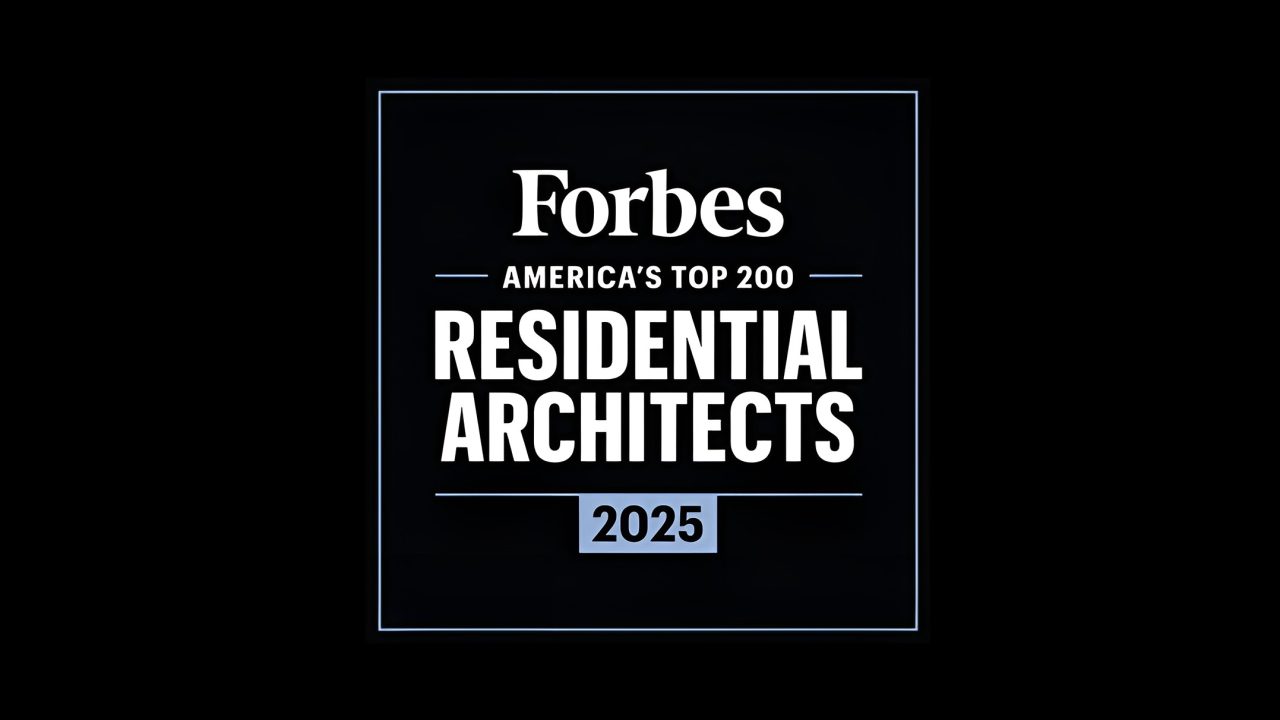Eleven APLA Alumni Recognized on Forbes’ Residential Architects List

At the end of 2024, Forbes published its inaugural list of America’s Top 200 Residential Architects, composed of firms from 42 states and the District of Columbia.
Considering that new residential construction topped $918 billion in the US last year, Forbes set out to find the best “creators of home” across the country. An advisory board of leading experts on American house design assessed every member firm of the American Institute of Architects and selected more than 750 firms to submit single-family houses completed in the last five years. The list included eleven graduates from Auburn’s School of Architecture, Planning and Landscape Architecture (APLA), spanning four states across the southeast.
Only four studios in Alabama were recognized, three of which were founded by Auburn alumni.
Pete John Vallas, a 1981 graduate, founded Pete J. Vallas Architect in Mobile in 1992, followed by Jeffrey Dungan ’93, who opened his eponymous studio in Mountain Brook in 1999.
In 2018, John Sease ’92, Chris Tippet ’92 and David Baker ’98 teamed up to create Tippet Sease Baker Architecture (TSB) in Birmingham, later expanding to Montgomery.
To the east in Georgia, Keith Summerour ’87 opened Summerour Architects in Atlanta in 1991 and now has a rural studio an hour outside the city in Gay, Ga., and an office in Chattanooga, Tenn. Gabriel Comstock ’01 teamed up with Lori Bork Newcomer and Joseph Smith to found Architectural Collaborative (Arcollab) in Athens in 2017.
Also included on the list was Marlon Blackwell Architects, opened by 1980 alum Marlon Blackwell with his wife Meryati Blackwell in Fayetteville, Ark., in 1992.
Representing Nashville, Tenn., is Pfeffer Torode Architecture, founded in 2010 by Jamie Pfeffer, who graduated from APLA in 2001 and the McWhorter School of Building Science in 2003; Jonathan Torode, who earned a degree in Fine Arts from Auburn University Montgomery in 1995 and a Bachelor of Architecture in 2001; and Scott Torode, a 1998 architecture alum.
The evaluation system helped Forbes devise its Architecture Residential Guiding Principles & Best Practices that are separated into seven categories: siting and local context, architectural form and detailing, building materials and craft, spatial configuration, HVAC and tech, physical and psychological effects and environmental appropriateness to climate.
See more in:
Alumni,
Alumni Recognition,
Industry Recognition